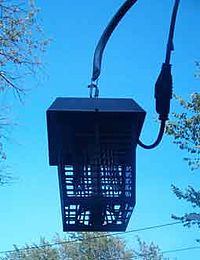It’s been a while since I’ve listed out the bad states for gamblers. Here’s an updated list. Make sure you read the notes because while all of these states have tax systems that are problematic for gamblers, some impact amateurs while others impact professionals. Note that I do not cover the laws that impact gambling here (such as Washington State’s law that makes online gambling a Class C felony).
Connecticut [1]
Hawaii [2]
Illinois [1]
Indiana [1]
Massachusetts [1]
Michigan [1]
Minnesota [3]
Mississippi [4]
New York [5]
Ohio [6]
Washington [7]
West Virginia [1]
Wisconsin [1]
NOTES:
1. CT, IL, IN, MA, MI, WV, and WI do not allow gambling losses as an itemized deduction. These states’ income taxes are written so that taxpayers pay based (generally) on their federal Adjusted Gross Income (AGI). AGI includes gambling winnings but does not include gambling losses. Thus, a taxpayer who has (say) $100,000 of gambling winnings and $100,000 of gambling losses will owe state income tax on the phantom gambling winnings. (Michigan does exempt the first $300 of gambling winnings from state income tax.)
2. Hawaii has an excise tax (the General Excise and Use Tax) that’s thought of as a sales tax. It is, but it is also a tax on various professions. A professional gambler is subject to this 4% tax (an amateur gambler is not).
3. Minnesota’s state Alternative Minimum Tax (AMT) negatively impacts amateur gamblers. Because of the design of the Minnesota AMT, amateur gamblers with significant losses effectively cannot deduct those losses.
4. Mississippi only allows Mississippi gambling losses as an itemized deduction.
5. New York has a limitation on itemized deductions. If your AGI is over $500,000, you lose 50% of your itemized deductions (including gambling losses). You begin to lose itemized deductions at an AGI of $100,000.
6. Ohio currently does not allow gambling losses as an itemized deduction. However, effective January 1, 2013, gambling losses will be allowed as a deduction on state income tax returns. Unfortunately, those gambling losses will not be deductible on city or school district income tax returns, so Ohio will remain a bad state for amateur gamblers.
7. Washington state has no state income tax. However, the state does have a Business & Occupations Tax (B&O Tax). The B&O Tax has not been applied toward professional gamblers, but my reading of the law says that it could be at any time.

